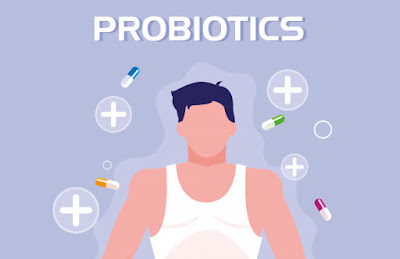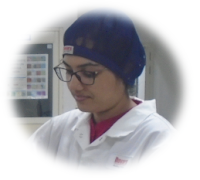 The word Probiotic is derived from Latin, which means “for life.” Long ago, when people were not aware of the existence of probiotics, even then, the good bacteria were consumed as a part of fermented foods such as bread, kefir, kumis, cheese, beer, and wine.
The word Probiotic is derived from Latin, which means “for life.” Long ago, when people were not aware of the existence of probiotics, even then, the good bacteria were consumed as a part of fermented foods such as bread, kefir, kumis, cheese, beer, and wine.
Probiotics refer to the live bacteria that are beneficial for health. They are also termed as “good bacteria” because they reduce the harmful bacteria in the gut and keep the digestive tract healthy. A healthy gut, in turn, helps in maintaining proper body functions. The probiotics can be consumed through fermented foods or health supplements.
The critical health benefits associated with probiotics consumption are:
- Probiotics are well known for their ability to cure diarrhea. Diarrhea generally occurs as a side effect of antibiotic consumption. The probiotic bacteria, such as Lactobacillus rhamnosus, Lactobacillus casei, and Saccharomyces boulardii, are known to be effective in curing diarrhea. In the case of children, the probiotic treatment is beneficial if diarrhea is caused by rotavirus infection.
- Probiotics cure digestive disorders. Studies have shown that probiotic supplements can reduce the symptoms of disorders such as Irritable bowel syndrome, necrotizing enterocolitis, and ulcerative colitis.
- Probiotics maintain a healthy heart. Excessive cholesterol accumulation in blood can leads to severe conditions such as atherosclerosis (formation of plaque in the arteries). Therefore, the elimination of excessive cholesterol from the body is essential. The probiotic strain Lactobacillus Plantarum is known to eliminate excess cholesterol from the blood and reduces the risk of heart disease.
- Probiotics boost the immune system. The probiotic bacteria activate a network of signals in the body that activate the immune system. They increase the production of antibodies. Lactobacillus rhamnosus GG, a widely used probiotic strain, is known to reduce respiratory infections in children. This probiotic strain has also been studied for its ability to reduce the severity of eczema in children.
- Probiotics cure lactose intolerance. The yogurt preparations containing probiotic strains like Streptococcus thermophilus and Lactobacillus bulgaricus improve the tolerance of lactose when consumed by the patients in combination.
- Other health benefits. Apart from the mentioned health benefits, probiotic bacteria are also known to provide relief to subjects suffering from mental disorders such as depression, anxiety, autism, and obsessive-compulsive disorder. Bioflex Probiotic supplements also possess anticancer properties.
Hopefully, in the future, various other health benefits of probiotic strains will come to light since scientists are working extensively to explore the mechanism of probiotic action in the biological
 system.
system.
Written By: Dr. Vibhuti Mishra
 system.
system.Written By: Dr. Vibhuti Mishra
Bio Chemist | 16
years of experience
Published Date: 10/12/2019
Comments
Post a Comment